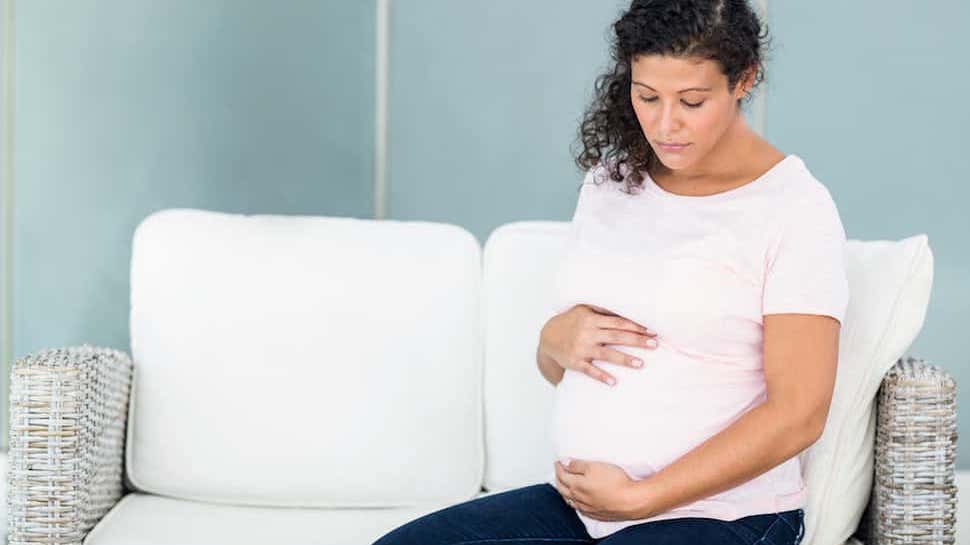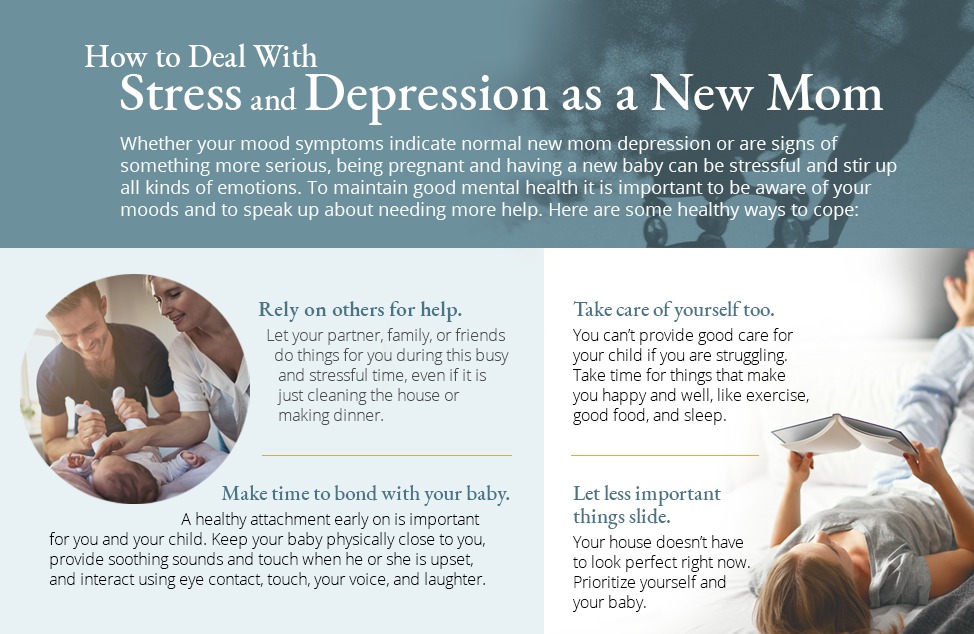
Depression and Pregnancy
Many women experience symptoms of depression during or after pregnancy. This is a time of big changes that can feel overwhelming and stressful, and it is perfectly normal to feel moody and sad. What isn’t normal is to have severe symptoms and signs of depression that persist. Reach out for support from caring family and friends and a diagnosis from a mental health professional so that you can get the care you need. Depression is treatable, even for women who are pregnant or are new moms.
If you are experiencing depression and anxiety while pregnant or after giving birth, you are far from alone. The hormonal changes, the shifts in your body, and the stress and pressure of bringing a new baby into the world can all affect your mood. A new study found that women pregnant today are more likely to feel depressed than their mothers did during pregnancy. And, rates of postpartum depression are as high as one in seven women who have given birth.
You may feel a little down during or after pregnancy, experiencing what people refer to as having the “baby blues.” This resolves within week or two and is not severe. If you are feeling sad, hopeless, guilty, and apathetic all day, every day, you may have more than typical baby blues and should reach out for support from family and professionals for screening and treatment.
Types of Pregnancy Depression
There are three main types of depression you may experience during or after pregnancy. You may have already been diagnosed with major depression and continue to have symptoms during pregnancy; you may develop perinatal depression while pregnant; and you may start to feel depressed after delivering your baby, which is referred to as postpartum depression.
Symptoms of Depression
If you are unsure whether or not you are experiencing normal baby blues or something more serious, be safe and reach out for help. Only a healthcare professional can diagnose you and determine if you have postpartum or pregnancy depression. The symptoms above are only guidelines, and every woman experiences and expresses depression in a unique way. It is always better to ask for support and a professional opinion than to struggle alone.
How to Deal With Stress and Depression as a New Mom
Whether your mood symptoms indicate normal new mom depression or are signs of something more serious, being pregnant and having a new baby can be stressful and stir up all kinds of emotions. To maintain good mental health it is important to be aware of your moods and to speak up about needing more help. Here are some healthy ways to cope:
- Rely on others for help. Let your partner, family, or friends do things for you during this busy and stressful time, even if it is just cleaning the house or making dinner.
- Make time to bond with your baby. A healthy attachment early on is important for you and your child. Keep your baby physically close to you, provide soothing sounds and touch when he or she is upset, and interact using eye contact, touch, your voice, and laughter.
- Take care of yourself too. You can’t provide good care for your child if you are struggling. Take time for things that make you happy and well, like exercise, good food, and sleep.
- Let less important things slide. Your house doesn’t have to look perfect right now. Prioritize yourself and your baby.

The Importance of Treatment
True depression cannot be resolved easily without professional support. There are serious implications for the mom, as well as effects on the baby when a pregnant woman or new mom is struggling and doesn’t get the support she needs.
Using antidepressants while pregnant is a choice you should make with your doctor after you become aware of the risks and the benefits. Risks to the baby are generally low but not non-existent. You and your doctor need to decide together if those risks are worse than the risks of what may happen to you or your child if you don’t get the help you need.
Whether you choose to use antidepressants or not, therapy can help. A good therapist can help you work through your feelings, learn how to change negative thoughts and behaviors, and develop healthier coping strategies. However you choose to get treatment for pregnancy and postpartum depression, the most important thing is that you do get help and support.





